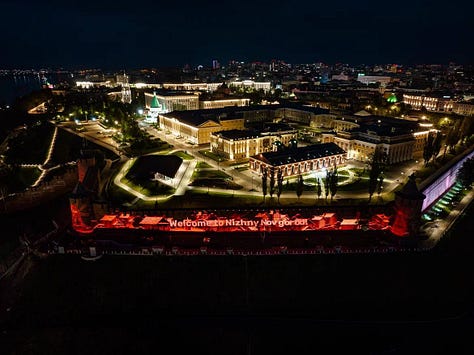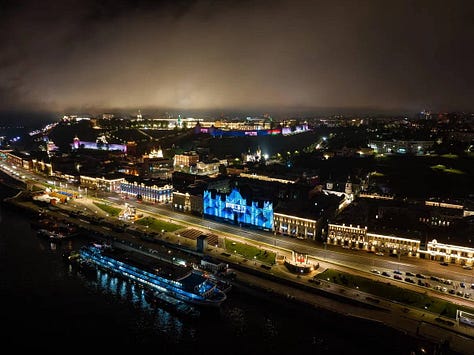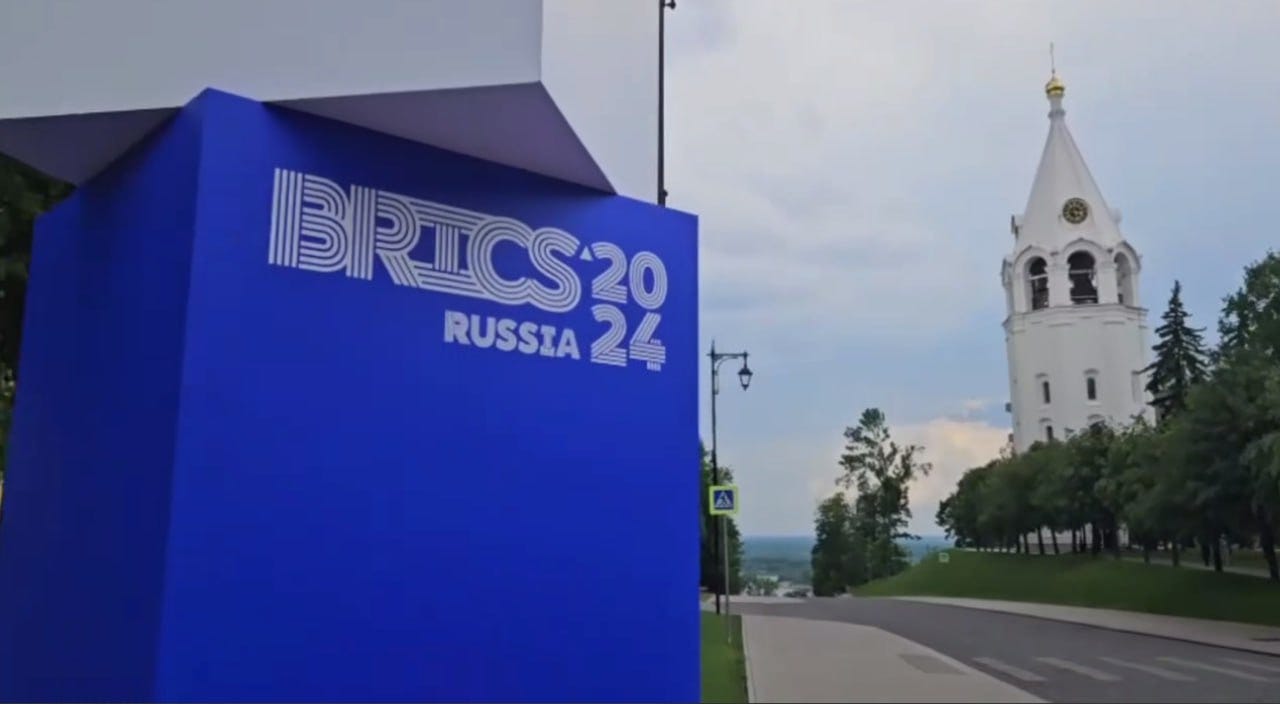BRICS Ministers' Meeting in Nizhny Novgorod: Expansion and Strategic Alignments
Global interest in BRICS surges as foreign ministers discuss expansion, new partnership frameworks, and Turkey's potential membership amid shifting geopolitical dynamics.
The city of Nizhny Novgorod is abuzz as the BRICS foreign ministers' meeting kicks off today, marking a significant event during Russia's presidency of the organization. This year's gathering features not only the ten member countries but also a notable number of Russia-friendly states eager to join the fold or collaborate more closely with the bloc.
Key Agenda: Expansion and Partnerships
One of the main topics of discussion will be the potential expansion of BRICS. This comes at a time when the organization is experiencing heightened interest from several countries across the globe. Turkey, a NATO member with strong ties to both the US and the EU, is one of the most notable prospective members. The inclusion of Turkey would signify a major geopolitical shift, emphasizing BRICS' growing influence and appeal beyond its traditional base.
BRICS has already seen two waves of expansion and is now contemplating a more structured approach to incorporating new members. The concept of "partner countries" is being developed to manage this interest without overwhelming the organization. This category would allow for active interaction and cooperation without full membership, maintaining the organization's cohesion and effectiveness.



St. Petersburg Economic Forum Highlights
The backdrop to this meeting includes significant discussions from the recent St. Petersburg International Economic Forum (SPIEF). Russian President Vladimir Putin highlighted the economic clout of BRICS, noting that the collective GDP of BRICS countries now surpasses that of the G7. This economic powerhouse is poised for further growth, especially with new members like Saudi Arabia, Iran, UAE, Egypt, and Ethiopia joining this year.
Putin's remarks were reinforced by the enthusiastic support for BRICS expansion from leaders like Zimbabwean President Emmerson Mnangagwa and Bolivian President Luis Arce. Both leaders see BRICS membership as a pathway to accelerated industrialization and economic development. Mnangagwa emphasized that there is unanimous support within BRICS for Zimbabwe's membership bid, highlighting the bloc's inclusive approach.
Diverse Global Interest
The meeting in Nizhny Novgorod is expected to draw representatives from around 20-25 countries, illustrating the broad and diverse interest in BRICS. Thailand's Foreign Minister Marit Sangiamphong, for instance, has expressed his country's desire to join BRICS, hoping to bolster Thailand's bilateral relations with member states and enhance its standing among developing nations.
Similarly, Sri Lanka's Foreign Minister Ali Sabri will advocate for BRICS membership, underscoring the importance of the Global South in reforming world governance and promoting sustainable development. Sabri plans to seek India's support for Sri Lanka's membership, reflecting the intricate regional dynamics at play.
Strategic Implications of Expansion
The surge in applications has necessitated the development of new membership frameworks. Russian Foreign Minister Sergey Lavrov noted that around 30 countries have shown interest in various forms of cooperation with BRICS. This growing list of potential members underscores the need for a new category of partnership, which would allow these nations to engage with BRICS without becoming full members immediately.
Lavrov's comments suggest a future where BRICS operates with a more flexible and inclusive structure, accommodating a wider range of countries while maintaining its core identity and operational integrity. This approach will be crucial in managing the balance between expanding the organization and preserving its effectiveness.
Turkey's Ambiguous Stance
Adding to the intrigue of this year's meeting is Turkey's bid for BRICS membership. Turkish Foreign Minister Hakan Fidan will attend the Nizhny Novgorod meeting, symbolizing a potential shift in Turkey's geopolitical alliances. As a key player in NATO and an important, though sometimes contentious, partner in the EU, Turkey's interest in BRICS could signal a broader strategic realignment.
Turkey's membership would not only diversify BRICS but also complicate the geopolitical landscape, potentially serving as a political statement towards the West. This move highlights the complex interplay of global alliances and the strategic calculations behind such decisions.
Future Prospects
As BRICS navigates its expansion, the upcoming ministerial meeting will be crucial in setting the direction for the organization's future. The introduction of partner countries will likely be a key development, allowing BRICS to manage its growth sustainably. This new structure aims to integrate newcomers into BRICS' established frameworks and traditions, ensuring that the organization remains cohesive and effective.
The enthusiasm and interest from countries worldwide indicate BRICS' growing influence and appeal as a counterbalance to Western-dominated institutions. The decisions made at this meeting will have far-reaching implications for global governance, economic development, and international relations.
In conclusion, the BRICS foreign ministers' meeting in Nizhny Novgorod marks a critical moment for the organization. As it stands on the brink of significant expansion, the strategic discussions and decisions made here will shape the future of BRICS and its role in the global order.





